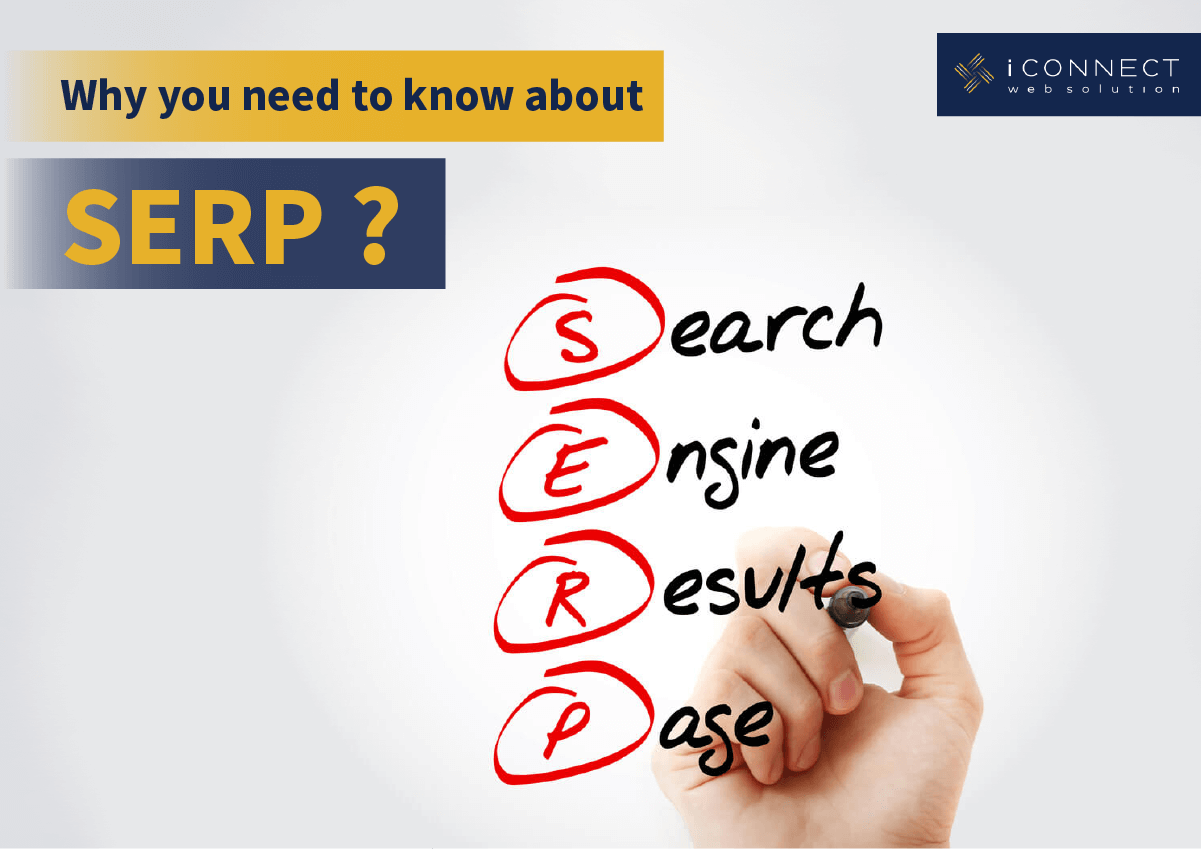

SERP stands for “search engine results page”. When you search for something on a search engine, the first page that shows up is an SERP.
Take a look at this image below:
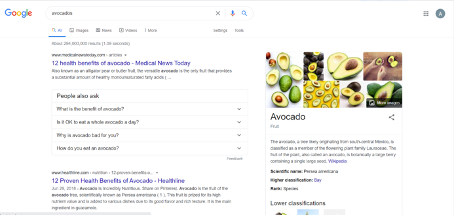
Image Credits: https://www.google.com/
It shows the first SERP when you search for the term “Avocados”.Today, we will discuss the different elements of SERPs and their impact on SEO.
What Is an SERP?
The search engine results page, also known as SERP or SERPs, is Google’s response to a search query. A modern Google SERP contains organic links, Wikipedia articles, Google shopping results, knowledge panel, ‘People Also Ask’ boxes, and top stories from the latest news.
In simple words, when you type or say something to Google, the SERP is what you will get.The modern SERP has many features that appear on the first page. However, a few are more important than others.
Important Elements of SERPs
The two most crucial factors of an SERP that appear on the first page are:
1. Paid Results:
The paid results come from advertisers bidding on keywords through Google ads. The SERP placement of an ad goes to the highest bidder, even though Google ads claim to take relevancy into account.
Google paid search results are indicated with a small “ad” icon in the top left corner of a snippet.
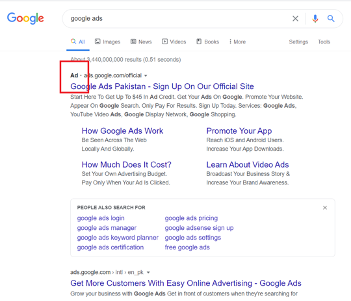
Image Credits: https://www.google.com/
According to the statistics, 51.61% of page one of the SERPs are ads. (Source: Rank Ranger). Ads appear at the top and bottom of the page to crowd the organic results, attracting more clicks.
2. Organic Results:
Organic results earn their placement by dominating Google’s algorithm to be the best and most relevant result for a given search query.
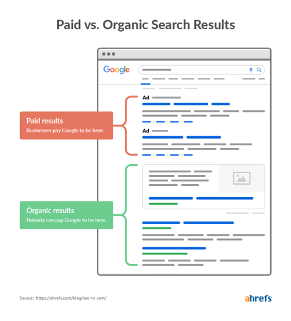
Image Credits: https://ahrefs.com/
Through Google’s complex algorithm, organic search results are determined, which has more than 200 ranking signals or factors. While Google’s algorithm is not disclosed, they have publicly confirmed a few ranking factors:
- Off-page SEO (the number of websites linked to a specific web page, or commonly known as backlinks)
- On-page SEO (keywords and phrases used on a webpage)
- The loading speed of a website
- Trust signals and brand presence.
Standard organic search result snippet includes:
- Page URL
- Page title or title tag
- Meta description
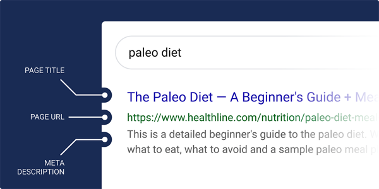
Image Credits: https://backlinko.com/
How SERPs Affect SEO?
The SERPs determine how a website appears on the first page of Google. For example, let’s assume that a website ranks on the first page of Google for the keyword “how to make a cake”.

Image Credits: https://www.google.com/
Take note that Google will push the number one result to well below the fold. This means that even if your website ranks #1, it will not get as many clicks.
On the flip side, the SERP for “what is baking” is less busy. It has10 blue-colored links, which show the most relevant organic results. This means that your website has a better chance of getting clicked here.

Image Credits: https://www.google.com/
Breaking Down Search Engine Optimization for SERP Ranking
As the name implies, Search Engine Optimization (SEO) is the practice of optimizing websites for discovery in search engines so they have more visibility on a search engine results page.
Thus, the relationship between SEO and SERP is correlated. The purpose of your SEO practices is to get on the first page of Google SERPs, while the SERPs show links based on resources SEO ranking factors.
Let’s take a look at two of the most crucial SEO ranking factors for SERPs.
1. On-page SEO
On-page SEO refers to the SEO practices that focus on web content creation. The goal of on-page SEO is to make sure that the content is easily discovered by a search engine (Google). This includes practices like creating page metadata, using statistical URLs, the inclusion of keywords, etc.
2. Off-page SEO
Unlike on-page SEO, off-page SEO techniques include strategies that affect the website as a whole. A few common off-page SEO techniques are link building, content marketing, social bookmarking, social media marketing, etc.
SEO’s full scope is far too broad and complicated to be covered comprehensively here, but what you should know is that on-SERP SEO focuses on getting high ranking on SERPs from an organic perspective.
SERP Features and No-Click Searches for SEO
SERP Features are non-traditional results like organic, paid, or directly pulled from Google’s Knowledge Graph. These include:
- Knowledge Card
- Featured Snippets
- Knowledge Panel
- Image Pack/Image Results
- People Also Ask (PAA)
- Top stories
- Knowledge cards
- Shopping results
- Sitelinks
- Tweet boxes
- Videos
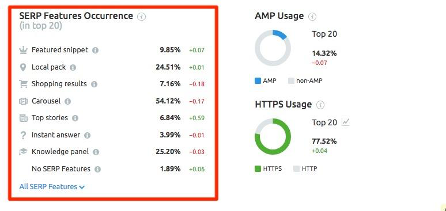
Image Credits: https://semrush-kb.s3.amazonaws.com/
The purpose of SERP features is to showcase relevant information in the search results without the need to click on a link. This is why SERP features are directly impacted on SEO as well.
According to the latest statistics, more than 50% of all searches are now no-click. (The Next Web)
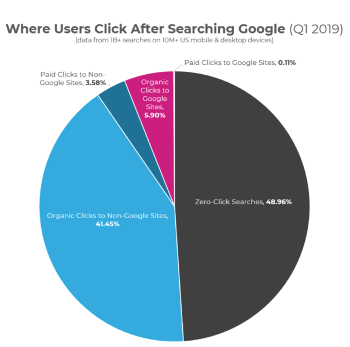
Image Credits: https://searchengineland.com/
However, being featured in SERP features may also increase clicks to your website.
Search engines have tough criteria for bringing your website to their top pages, and it is mostly due to the vast number of websites on the Internet that creates a tough competition among themselves. Hence, marketers and website owners use different SEO strategies to optimize a website’s performance so that they can be featured on the first SERPs.
